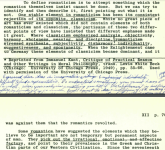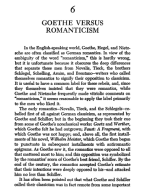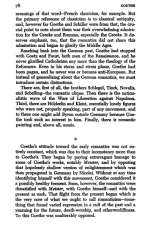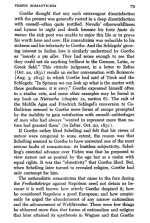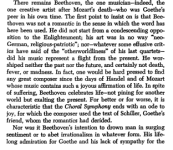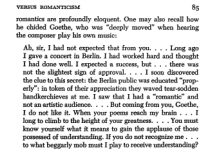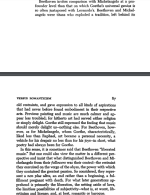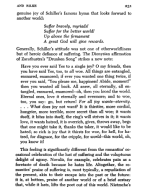Romanticism is rooted in critiques of Enlightenment philosophers by writers like Chateaubriand who were chiefly concerned with beauty, much more so than were the philosophes. particularly important was an understanding of faith and mystery as central to the concept of beauty. Romantics contended that poets were even more fundamental to discovering truth than were philosophers and scientists. this is a major part of why we understand both militant atheists like Shelley and fanatical Christians like Hamann to be Romantics.
Your characterization of Romanticism only means something to someone already convinced of it. If I disagreed with that conception of beauty, then I wouldn't agree that Romanticism constituted a return to beauty. Another problem is that this return takes for granted a sort of anachronistic reinterpretation. I'd been rereading Shelley's essay before writing this post, and I found this same tendency. (I'm sorry to rely on examples, but it's hard to explain myself otherwise.) He describes, as you say, that poetic, and, by extension, aesthetic, supremacy, and he even assigns a moral purpose to poetry, not in the traditional didactic sense, but rather, he thinks that the "great instrument of moral good is the imagination," which poetry expresses, and, in fact, has little to do with right and wrong. Yet how does he resolve apparent contradictions against his own ideology? Take what he has to say about Milton. Although Milton declared his work to justify the ways of God to man, Shelley reasons instead that Milton's genius allowed him to give "no superiority of moral virtue to his God over his Devil." What made Milton's
Paradise Lost brilliant was that it actually refutes what it ostensibly supports. I don't think it's absurd of me to find this incomprehensible. Romanticism's characteristic aesthetic supremacy, which we seem to agree on as distinctive of it, makes it such to me: it subsumes every other ideal and forces an all-encompassing subjectivism. Even when I believe their conclusions, I'm not convinced of their method. And conversely, though I reject much of, say, Pope's
Essay on Man, I can at least, in a way, acknowledge the method. Before any ideological criticisms, my taste was formed simply through reading their poetry, and even now, I find an ode of Dryden's much more artistically coherent than one of Wordsworth's or Keats', for example.
i wasn't talking about how much money poets were making... but the importance of poets and poetry within these ideologies. now i'm confused as to how you're aware of Shelley but seemed unaware as to why i brought up poetry as a pillar of Romanticism.
You didn't bring up poetry as a pillar of Romanticism, which I wouldn't have disputed, but characterized Romanticism as constituting a return to poetry, as if the Romantic conception of poetry was somehow a norm anytime before. I brought up Pope to support this point. Although not expressed in the same way, poets had rarely had as much importance. It's not about the money, anyway, but how he made it.





